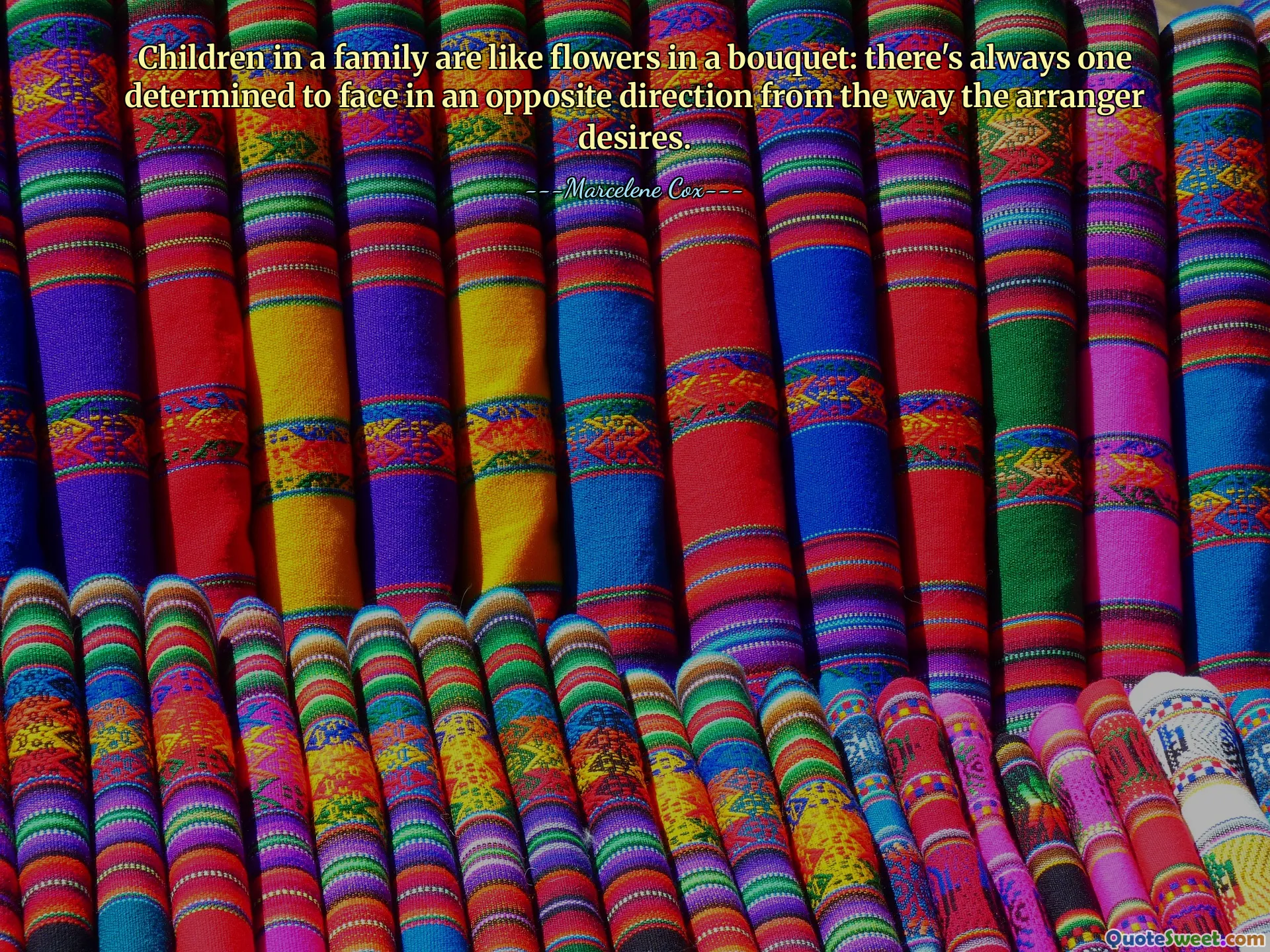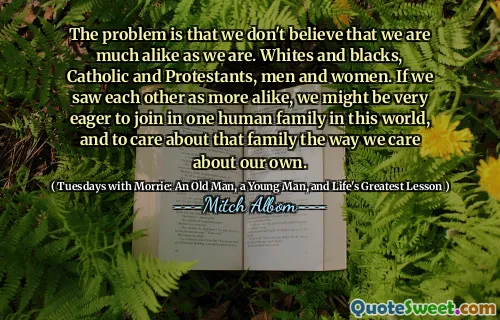
Children in a family are like flowers in a bouquet: there's always one determined to face in an opposite direction from the way the arranger desires.
Families are intricate ecosystems where each individual reflects their unique personality and aspirations, much like flowers in a carefully arranged bouquet. While a parent or caregiver may have a specific vision for harmony and unity, children often bring their own perspectives and preferences, sometimes diverging from expectations or desires. This divergence can be perceived as a challenge, but it is also an essential aspect of personal growth and independence. Recognizing that each child wishes to develop their identity, interests, and opinions helps foster an environment of acceptance and understanding.
This analogy underscores the importance of embracing diversity within the family structure. Just as bouquets benefit from a variety of flowers that add color and character, families thrive with each member's individuality. Observing a child choosing to face in a different direction isn't necessarily a sign of defiance or discord but may reflect their unique internal compass guiding them toward their own path. As parents or guardians, embracing this independence requires patience and sometimes a shift from traditional expectations to a more nurturing and supportive approach.
In the broader scope, this disparity also encourages growth, resilience, and adaptability within familial relationships. When children feel accepted for their differences, they develop confidence and a sense of security. Conversely, attempts to enforce strict conformity can stifle their natural inclinations and creativity. Ultimately, the beauty of a family resembling a bouquet is found in its diversity — each member contributing their distinct flavor to the collective whole, enriching life’s tapestry.
This insight resonates universally, emphasizing that harmony in a family isn't about uniformity but about appreciating and accommodating differences. By understanding that each child's orientation or behavior might occasionally oppose the family’s central plans, we appreciate the dynamic process of nurturing individuals into their authentic selves.











